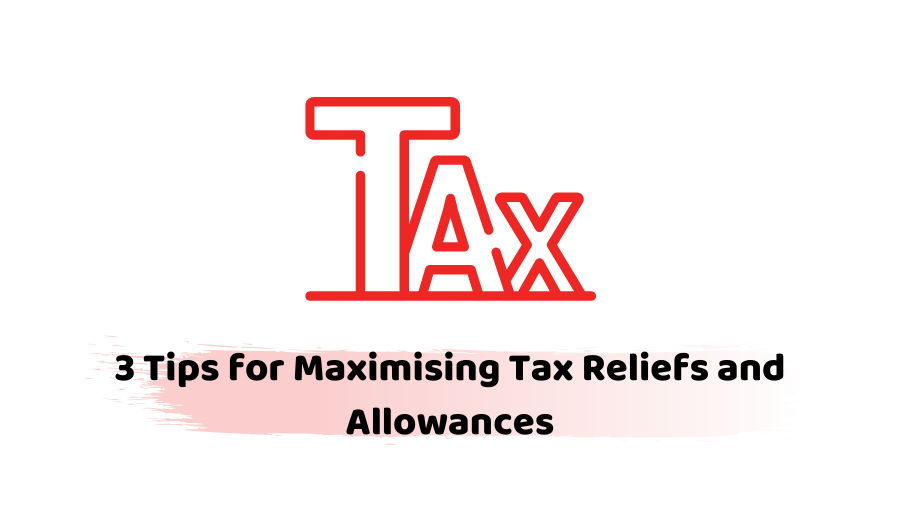Income tax Relief and Allowances enable you to reduce the amount of income tax that you are expected to pay. Income tax exemptions and relief can refer to income from work, self-employment, savings, and retirement, as well as income from land.
HM Revenue & Customs must automatically grant those tax reliefs and allowances when you file a tax return. Yet in other situations, to reduce your tax bill, you need to make sure you demand the correct tax deductions and reliefs.
No right-minded person wants to pay taxes more than what they are due. That’s why it is imperative to comply strictly with all tax requirements before deadlines to avoid paying penalty fees. Aside from following the timelines religiously, there are other ways to minimize your taxes.
The government and HMRC provided various avenues, like reliefs and allowances, to reduce their tax obligations and ease the burden. You can consult with chartered accountants to help you manage your tax affairs.
3 Tips for Maximising Tax Reliefs and Allowances
In the meantime, here are three tips you can do to maximize reliefs and allowances:
1) Maximize pension contributions
Each would-be pensioner can contribute £40,000 annually until it reaches its maximum value of £1,055,000 to their overall pension stock. The best part of putting money to your pension is tax relief, which is dependent on your tax bracket.
The tax relief can be as low as 20 percent for the basic rate and can reach as high as 45 percent. Aside from the tax relief, you are also helping secure your future through your pension investments. However, there are complications associated with various contributions that could potentially arise. It is best to consult with contractor accountants to handle it for you.
2) Use your ISA allowance
Your individual savings account can generate money through time, which can be as much as £20,000 annually. However, ISA allowances are different from pensions. Unclaimed pension allowances can be carried over to the next year while unused ISA allowances do not. If you do not claim your ISA allowance for the current year, you can consider it as lost money
The way you handle your ISA also depends on its nature. Cash ISA works similarly to a personal savings account, which has limited and low-interest payments. The best part about cash ISA is that it is stable compared to stocks and shares ISA, but it has lower returns.
For stocks and shares ISA, you will have to invest your money in open-ended companies. These include investment trusts, government gifts, corporate bonds, and particular companies the HMRC chose. Additionally, a stocks and shares ISA is an excellent method of guarding your financial stability against dividend tax or capital gain tax.
Get in touch with the best accountants to determine which ISA best suits your needs.
3) Strategize your dividends redemption
Taxes for dividends are lower than income tax. The law states that if you receive at least £150,000 for a dividend payment, you no longer have to pay a separate rate when you receive your dividends next year. Alternatively, it also works the same way if you withhold receiving your dividends for this year and simultaneously get both bonuses next year. In doing so, you save by paying a fee good for one year for two consecutive years.
Conclusion
Knowledge is power in terms of tax obligations. If you are smart with your finances, you can save a ton of money by maximizing the reliefs and allowances that the government allows.
We are professional accountants in UK, you’ll surely be in safe hands with us! Get in touch today and let us help you handle your taxes!





















































